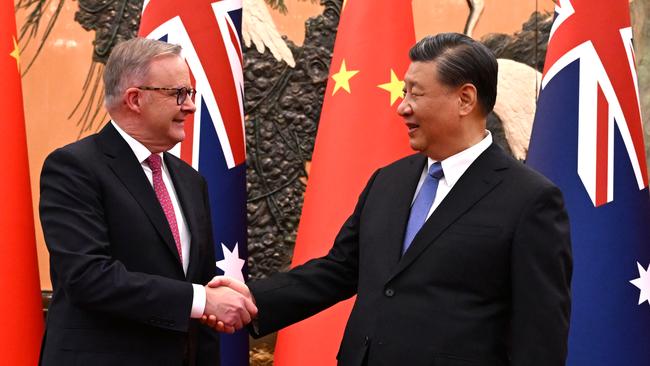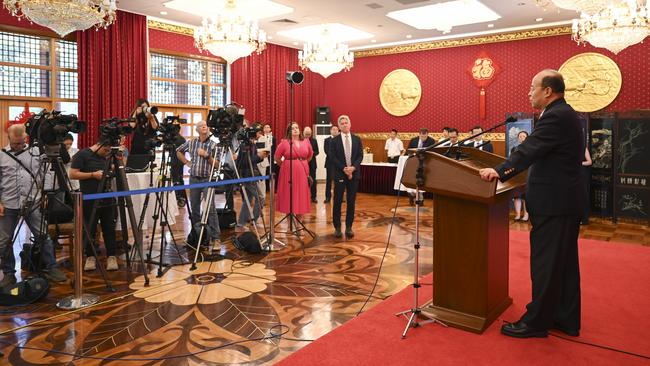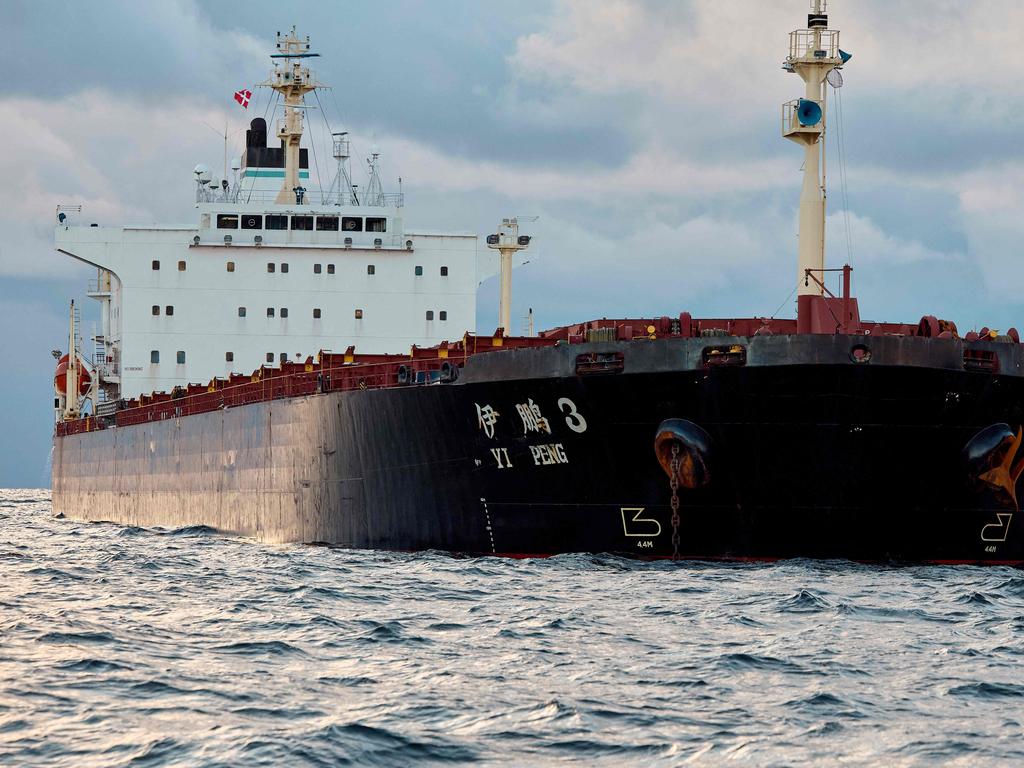Labor shrinks Australia’s diplomatic footprint in China
Chinese officials have been briefed on the impending closure of Australia’s consulate in Shenyang, which will further the imbalance in diplomatic representation in the two countries.

The Albanese government is closing Australia’s consulate in Shenyang, shrinking its diplomatic footprint in China for the first time since the Whitlam government recognised Beijing in 1972.
The Australian can reveal that Australia’s consulate in Shenyang, the capital of Liaoning Province, will be closed next week on December 6.
Chinese officials have been briefed on the impending closure, which will further the imbalance in diplomatic representation in the two countries.
A spokesman for the Department of Foreign Affairs confirmed the closure late on Friday. “The Australian Government continues to evaluate our diplomatic presence to ensure we are best positioned to advance Australia’s national interests, and deliver value for taxpayer money,” the DFAT spokesman told The Australian.
The three staff in the consulate – which opened in 2019 in the Morrison era – will be relocated to Australia’s remaining missions in China. Along with Australia’s embassy in Beijing, Australia has consulates in Shanghai, Guangzhou and Chengdu on the Chinese mainland, as well as a consulate in Hong Kong.
By contrast, the number and size of China’s diplomatic postings in Australia have continued to grow in recent years as the volume of Chinese international students has remained robust, and as tourists from China continue to far outnumber Australians visiting China.
In addition to China’s embassy in Canberra, China has consulates in Sydney, Melbourne, Brisbane, Perth and Adelaide where its giant 5600 sqm compound was opened in 2021 in the midst of Beijing’s epic trade coercion campaign on the Morrison government.

China ranked 1st in the Lowy Institute’s 2024 global diplomacy index, which measures the size and breath of a country’s diplomatic presence in the world. Australia was ranked 26th, continuing what the Lowy Institute has called its “diplomatic deficit”.
The closure comes as Australian visitors to China remain far below their pre-pandemic levels, even as Beijing continues to waive visa requirements for many visitors.
This week the Chinese government said Australians would be allowed to enter China for 30 days without a visa, doubling the previous 15 day visa free period.
Australia’s travel guidance for China was this week again set to “exercise a high degree of caution”, where it has been since 2020, the year Cheng Lei was detained following the earlier arrest of Dr Yang Hengjun.
“Australians may be at risk of arbitrary detention or harsh enforcement of local laws, including broadly defined National Security Laws,” the Australian government’s Smart Traveller website advises.
Despite emerging strains, the Australian government spoke much more optimistically about relations with China five years ago when the Shenyang consulate was opened.
In a speech to mark the opening of the new consulate, then Department of Foreign Affairs and Trade secretary Frances Adamson said the growth of Australia’s diplomatic network in China reflected “the importance of this bilateral relationship to both sides”.
The then DFAT secretary cited a report that had found over 80 per cent of Australian businesses designated China as a “top three priority country for investment”.
Australian investment into China has plunged since 2019 as the bilateral relationship deteriorated and as the Chinese economy’s growth rate slowed during the pandemic era. Beijing’s fractious relationship with Australia’s security partner Washington has compounded the fears of many in the business community.
Two-way trade with China, however, has continued to boom, setting a record in 2023 at more than $327 billion.
China’s northwest — often dubbed the country’s rust belt — has been particularly badly hit by the country’s economic problems.
Australian consular and business functions for the region, which has a population of almost 100 million and spans China’s Liaoning, Jilin and Heilongjiang provinces, will be covered from Australia’s Embassy in Beijing.






To join the conversation, please log in. Don't have an account? Register
Join the conversation, you are commenting as Logout